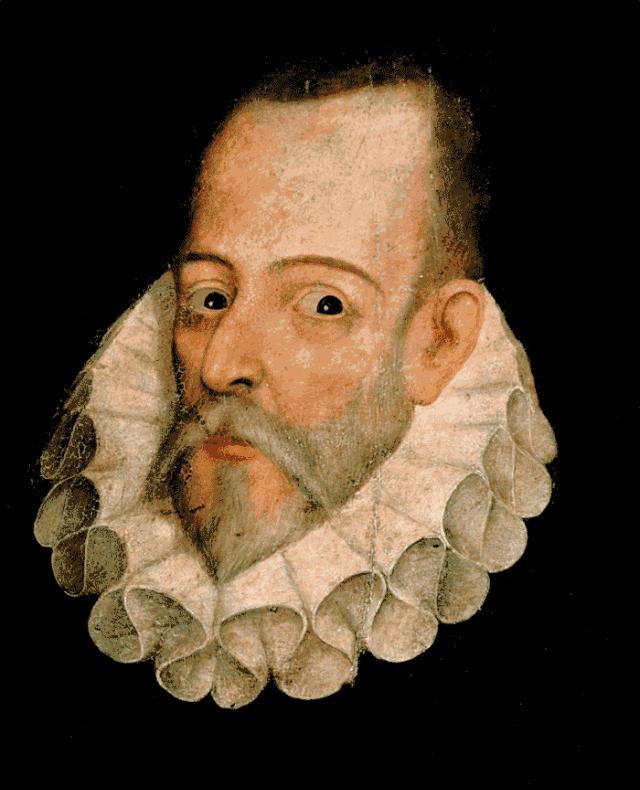
∞ Author, 1960
The Maker
The Parable of Cervantes and Quixote[1]
Tired of his Spanish homeland, one of the king's veterans sought comfort in the vast geography of Ariosto[2], in the Valley of the Moon, where the time squandered by dreams, and in the golden idols of Muhammad stolen by Montalban[3].
With mild self-deprecation, he conceived of a gullible man who, seduced by fantasy readings, began to seek feats or magic in the mortal lands of men named Tobso[4] and Montière[5].
After being defeated by reality and Spain, Don Quixote died around 1614 in the village where he was born. Miguel de Cervantes lived a little longer than he did.
For these two people, for the dreamed and the dreamed, the whole plot is the confrontation between two worlds: the non-real world of the knight's books, the everyday and ordinary worlds of the seventeenth century.
They did not expect that the years would eventually erase that difference, nor did they think that All the poetry of La Mancha[6] and the thin figure of Montière and the knight would, in the future, be no less than the chapter of Sinbad[7] or the vast geography of Aliosto.
Because at the beginning of literature is mythology, and at the end it is the same.
Devotto Clinic[8], January 1955
Translation Notes:
[1] This article was deleted in the 2012 edition of Borges's Poetry Collection.
[2] Ludovico Ariosto (1474–1533), Italian poet.
[3] Reinaldos de Montalbán, hero and knight in the 12th-century French epic Les Quatre Fils Aymon, has since appeared in medieval Dutch, German, Italian, and English literature, worshipped by Cervantes and mentioned in Don Quixote.
[4] Toboso, a town in the province of Toledo, Spain.
[5] Montiel, a region of castile-La Mancha, Spain.
[6] La Mancha, a region of central Spain, where the story of Don Quixote takes place.
[7] Simbad, a character in One Thousand and One Nights who has traveled through hardships.
[8] Clínica Devoto, located in Buenos Aires.
They did not expect that the years would eventually erase that difference, nor did they think that all the poetry of LaMancha and Montiel and the thin figure of the knight would, in the future, be no less than the chapter of Sinbad or the vast geography of Aliosto.
—Translated by Borges | Chen Dongbiao
—Reading and Rereading—
Parable of Cervantes and Don Quixote
Fed up with his land of Spain, an old soldier of the king sought solace in the vast geographies of Ariosto, in that valley of the moon where the time wasted by the dreams is and in the golden idol of Muhammad that Montalbán stole.
In meek mockery of himself, he devised a gullible man who, disturbed by the reading of wonders, gave in search of feats and enchantments in prosaic places that were called El Toboso or Montiel.
Defeated by reality, by Spain, Don Quixote died in his native village around 1614. It was soon survived by Miguel de Cervantes.
For both of them, for the so ador and the so ado, this whole plot was the opposition of two worlds: the unreal world of the books of chivalry, the everyday and common world of the seventeenth century.
They did not suspect that the people would end up ironing out the discord, they did not suspect that La Mancha and Montiel and the lean figure of the knight would be, for the future, no less poetic than the stages of Sinbad or the vast geographies of Ariosto.
Because at the beginning of literature is myth, and also at the end.
Devoto Clinic, January 1955
Chen Dongbiao translation and others
Caption: Portrait of Cervantes
By Juan de Jáuregui